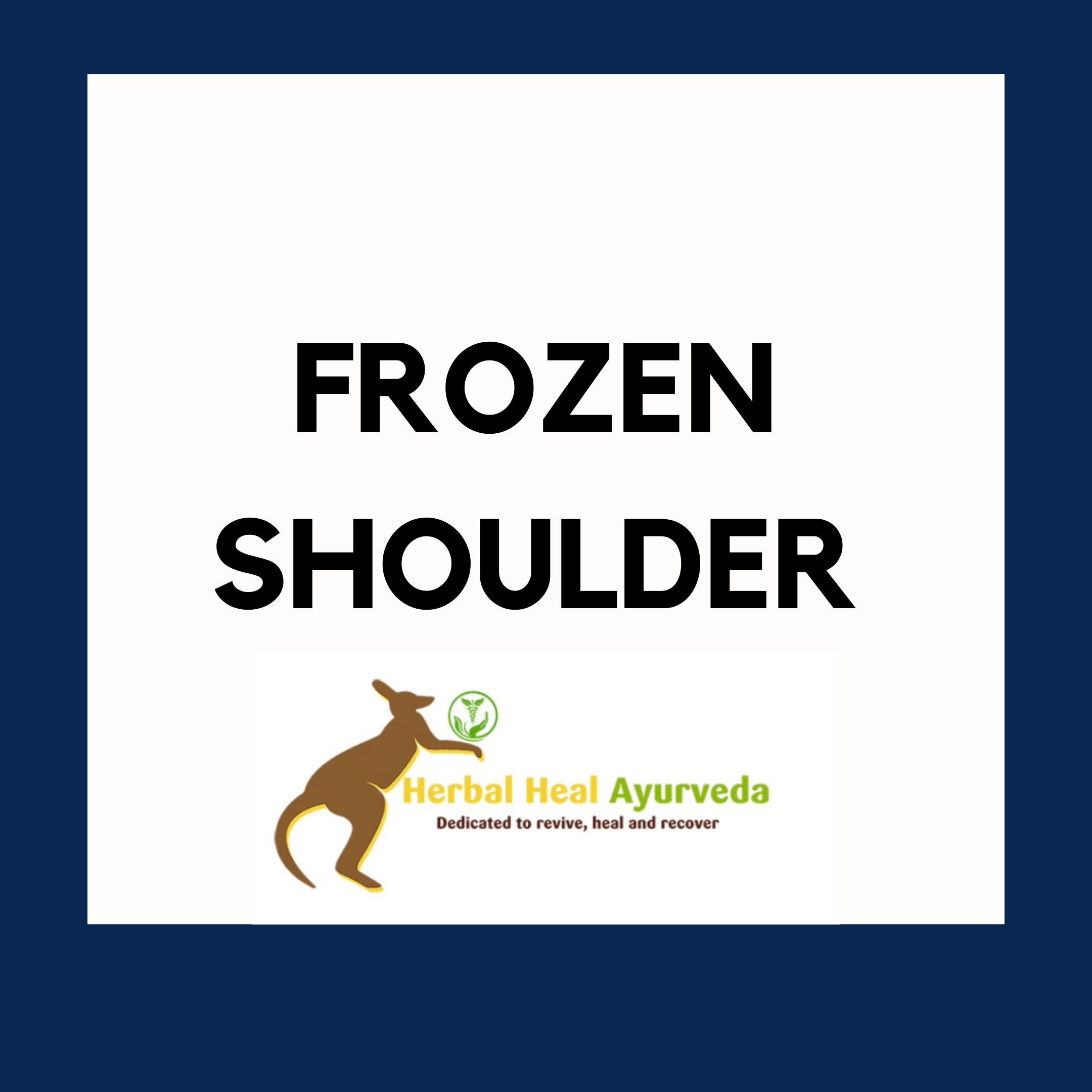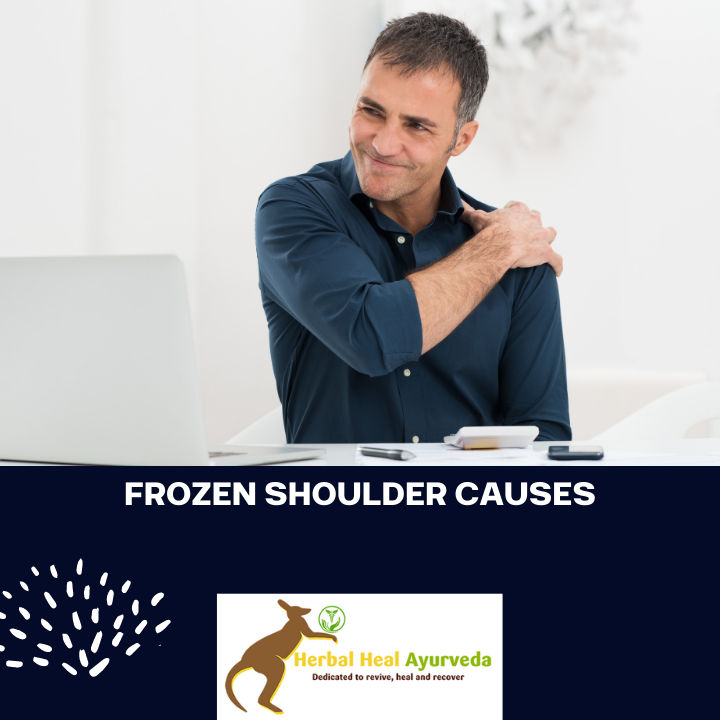Frozen shoulder
Frozen shoulder is a common condition characterised by pain, stiffness, and restricted shoulder joint movement. In this condition, the shoulder girdle will be stiff and restrict the free movement of the joint. Adhesive capsulitis is another name for this condition.


Three stages for Frozen Shoulder based on symptoms:
- Stage 1-Freezing Stage: Severe pain will restrict movements of the shoulder joint. It is most severe during night-time, and it will last for 6-9 months
- Stage 2-Frozen Stage: In this stage, the pain will diminish, and the joint becomes stiff, and movements will be more difficult. It will last for 4-12 months.
- Stage 3-Thawing Stage-During this stage, there will be an improvement in joint movements, and it can last for 6-24 months.
What causes frozen shoulder?
Frozen shoulder is caused chiefly due to the inflammation of the tissue which surrounds the shoulder joint. Risk factors: Following factors may increase the risk of frozen shoulder.
- Gender: Women are more prone to this condition than men.
- Age: People 40 years and older
- Due to any injury
- Due to any underlying health condition such as diabetes, Parkinson's disease, Thyroid disorders, Cardiovascular disorders.
Frozen shoulder an Ayurvedic perceptive:
In Ayurveda, the frozen shoulder is related to Apabahuka, a condition affecting Amsa Sandhi (shoulder joint) due to the vitiation of Vata dosha. Wasting of the shoulder joint or Amsashosha due to Kapha dosha is considered the primary stage of the frozen shoulder in Ayurveda.
Causes of Apabahuka, according to Ayurveda, are as follows:
- Abdominal pain
- Increased frequency of stool.
- Distention of abdomen.
- Flatulence
- Loss of weight.
- Loss of sleep and Anxiety.
Pittaja Grahani Symptoms: Caused due to imbalance of Pitta
- Due to any injury
- Excess consumption of astringent and bitter food.
- Exposure to cold wind and cold climate
- Food and other activities aggravate Vata dosha.
- Due to wrong positioning while sleeping and sitting.
- Due to underlying health conditions like rheumatoid arthritis, diabetes.
In Ayurveda, there are effective treatments for Apabahuka or Frozen shoulder by balancing the Vata dosha through diet, lifestyle modifications, internal medicines and specific Ayurveda therapies.
Activities that one should avoid preventing aggravation of Vata dosha are,
- Excessive consumption of oily and fried food
- Excessive exercise
- Excessive fasting
- Coldwater showers
Ayurvedic diet and lifestyle recommendation for frozen shoulder:
- Try to follow an easily digestible diet.
- Try to include spices, ginger, garlic, and pepper in your diet, which improves your digestion.
- Turmeric is an excellent anti-inflammatory herb, and use it in your dishes.
- Always follow freshly prepared warm and moist food.
- Always drink warm water.
- Avoid consumption of fried, oily and cold food
- Add more vegetables and fruits to your diet
- Try to do some minimal exercise or yoga
- Get adequate sleep which will help you to relieve your stress
Along with these diet and lifestyle changes, follow some internal Ayurveda medication and external therapies with the advice of an Ayurveda doctor.
Usually, the external therapies include Abhyangam (Ayurvedic herbal oil massage), Choornakizhi, Elakizhi and UpanahaSweda.
Self-medication is not advisable. Advises are only for general information; you must consult an Ayurvedic doctor before making any lifestyle changes, diet changes or consuming ayurvedic drugs.
Book an Ayurveda Consultation with Dr Aswani Anil (B.A.MS). For more details, contact us at info@herbalheal.com.au,
166, Saint Johns Road, Glebe
Mobile - 0426 108 576
Herbal Heal Ayurveda Offers Authentic Kerala Ayurveda medicines, Ayurvedic diet advice and Authentic Panchakarma treatment. Come and experience the ayurvedic way of life with Dr Aswani Anil(B.A.M.S) at Herbal Heal Ayurveda Sydney.

